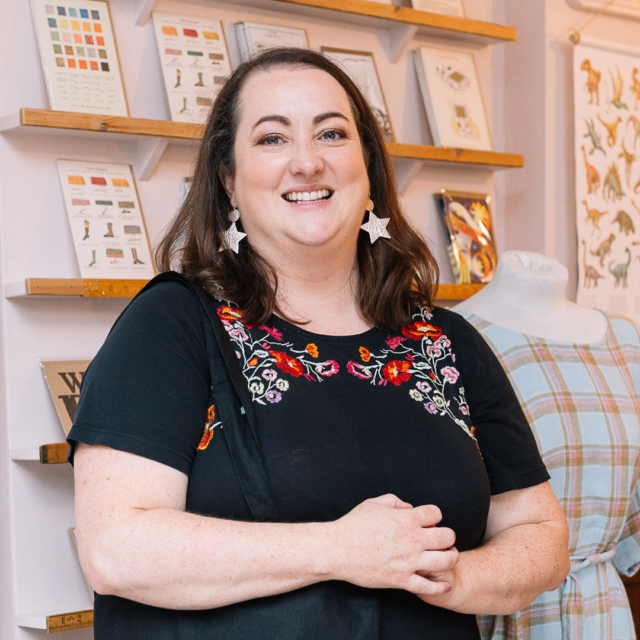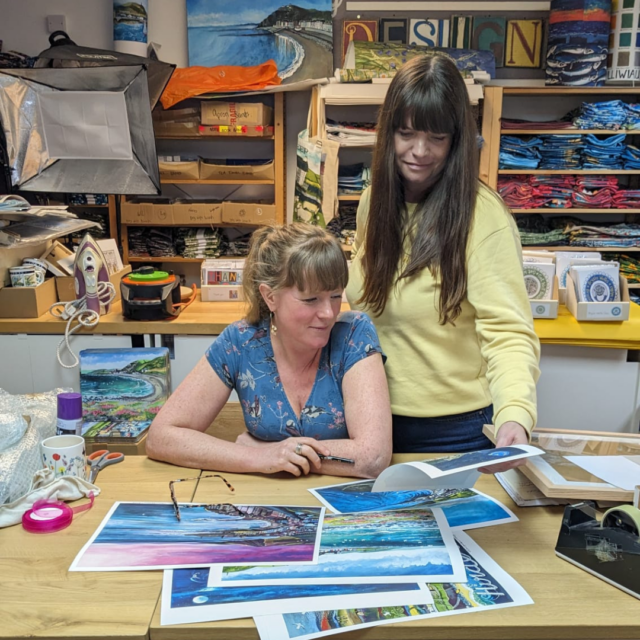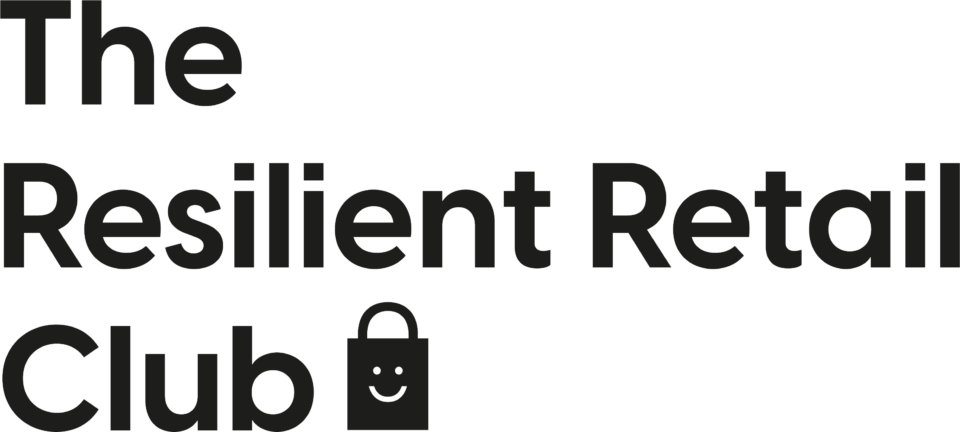Selling On Third-Party Marketplaces
As a creative product business, there are many ways that you can get products in front of potential customers, and it’s thanks to the ever-growing reach and growth of technology that digital marketplaces have become a major component of the shopping process.
From ‘Amazon’ to ‘Not On The High Street’ and from ‘Etsy’ to ‘eBay’, third-party marketplaces appear to offer a lot of advantages in the form of increased traffic and exposure to new audiences, often with enticingly reasonable commissions and fees, but it’s important to remember that you’re not really in the business of selling, you’re in the business of acquiring customers, and that building relationships and creating repeat business and super-fans is the path to building a resilient retail business.
So, in episode 14 of The Resilient Retail Game Plan, I run through the pros and cons of using these marketplaces; the considerations for you to make before committing yourself and your stock to multiple digital outlets; and the expectations on you as a business owner once you start working with a third-party platform. Have a listen now!
No time to listen? Read the episode in this blog post below!
I want to share with you my thoughts on some of the key marketplaces that you can sell your products on, but before I do that – ask the question – why do it at all? I love a pros and cons list so what better way to start this post than to outline mine for selling on a third-party market place:
Pros
– Higher traffic than your own website
– Exposure to a new audience
– More profitable than wholesale
– You can test and learn with a new audience
– Your products are listed but you keep control of the stock
Cons
– Competition is even fiercer especially on the larger marketplaces e.g. Etsy or NOTHS
– There may be high expectations around customer service e.g. you are expected to be “always on”
– Setting up your account and listings will take precious time
– Having to manage your stock across marketplaces can be time consuming but necessary to avoid over-selling
– Not all marketplaces are getting as much traffic as you might hope, meaning that you are taking the time to set up but not necessarily getting the reward.
– You don’t own the customer relationship – so you can’t grow loyalty or repeat custom very easily

Enjoyed this post? Why not pin it to Pinterest
Things to consider when choosing a marketplace
– Is it your customer?
– Do the other brands listed fit with your brand?
– WIll being associated with this marketplace reflect well on your business?
– How are you going to manage your stock?
– How much of a cut of your sales are they going to take?
– How many of your products do you want to list on their site?
– Do you want to offer your whole range or just a selection to keep some exclusivity for your site?
Etsy
Etsy gives creatives all over the world a platform to sell handmade and unique products. To get set up you simply create your own store, upload your products and then market them worldwide all very quickly and easily. One downfall to Etsy is that you will tend to get a lot of competition with other sellers so if this is the marketplace for you, think outside the box and try to market your products uniquely.
Cost – £0.16 – Listing fee per product. When you sell an item, there’s a small commission and standard payment processing fee – 5 % Transaction fee, 4% + £0.20 payment processing fee. For example fees on a £10 product = £1.11.
Best for – The hobbyist turned entrepreneur.
Not On The High Street
Not On The High Street is the number 1 curated marketplace in the UK and you only have to browse a few pages to see the variety of premium/unique products for sale. To get set up you have to apply to become a seller, but not everybody is accepted so take your time to think about your application and sell your business story. Great photography and a unique product are key.
Cost – £199 sign up fee and a 25% commission fee + VAT per sale.
Best for – Premium brands with slightly more expensive/unique items.
Folksy
Folksy market themselves as ‘the home of British craft’ and is a marketplace for handmade/original gifts. Unlike Etsy only handmade items are allowed. To get set up you create a simple storefront which is easy to use.
Cost – Two types of accounts available: Folksy basic account has no monthly fee and charges 15p +VAT to list each item and 6% + VAT sales commission. The Folksy plus account costs £5 (inc VAT) a month for unlimited listings but you still pay 6% + VAT sales commission. If you have a large number of products its better to pay the £5 per month charge.
Best for – Handmade items
nuMONDAY
The ethos at nuMonday is to provide an affordable platform for creatives in the UK. The marketplace is full of unique gifts and to set up you simply pick a shop name and start uploading your products.
Cost – Unlike other marketplaces nuMonday does not charge listing fees or commission per sale. You can upload unlimited products and just pay a monthly fee from £5.
Best for – Businesses who want to dip their toe into the marketplace world without paying high fees.
And so to Shop
Known as ‘The Indie Marketplace’ And So To Shop is a platform ran by independent business owners who love to cheer on other independent creatives and are on a mission to drive consumers towards a more ethical, sustainable and positive way of shopping. This is more than just a marketplace, it is a community.
Cost – Choose between £75 one off fee with 12% commission on each sale or £10 a month (you have to sign up for 6 at a time), also with 12% commission on each sale.
Best for – Independent brands who want to be part of a community and learn whilst selling beautiful gifts.
eBay
eBay is one of the most recognised marketplaces in the world and the place to get nearly anything and everything. To set up you can simply create an account and start listing items or create a store with a catalogue of your products.
Cost – You pay 10% of the final transaction value and a listing fee of 35p after using your monthly allocation of 1,000 free listings (or more if you have an eBay Shop)
Best for – eBay is a good channel to clear products at a discount – it can even be kept separate from your business so your customer doesn’t even see a big sale on your site
Amazon
The larges t marketplace globally, best for functional products and also great for traffic. Amazon shoppers are value focused and will often pay for prime to get products cheaper than other sellers so its best to have a unique product to sell.
Cost – You can choose between a basic or pro account depending on how many items you list. The basic account is free and you pay £0.75p when you sell an item or the pro account is £25 a month with additional fees, You can also choose the fulfilment option, meaning you don’t need to hold stock or fulfil orders yourself.
Best for – Businesses who have a large volume of functional products.
ASOS Marketplace
This marketplace is ideal for new fashion designers and up-and-coming brands to sell collections alongside the world’s most exciting established brands. You must apply to become a seller and there is no guarantee you will be successful but if you are then you create an online boutique which you can link to your social media and customise.
Cost – A simple cost system – £20 per month, unlimited listings, free listing fee and 20% commission per sale.
Best for – If you’re serious about fashion then this is one of the best places to start.
Depop
Depop is a marketplace that emphasises local sales of vintage and secondhand items. Its Instragram-esque style is tailored for the social media generation, capturing the attention of buyers with the use of bold product images. To get started you simply set up an account and start uploading images of your products – similarly to how you would upload an Instagram post – hashtags included!
Cost – There’s no fees to list an item – only pay 10% when it sells.
Best for – Vintage items or overstock fashion you want to push.
Instagram & Facebook Shop
Business owners can now create a dedicated “shop” section on their Facebook Page or Instagram profile and build a catalogue of products and services that visitors can browse, save, share, and even purchase.
Cost – Shops are free to create and they are integrated across Facebook’s many apps, which means it’s going to be available on your Facebook Page, Instagram profile and accessible from stories and ads.
Best for – Everyone with a Facebook and Instagram page!
Tips for boosting your sales on a marketplace:
1. Having good conversion on your listings – in other words, are people finding what they want when they come across your listing? Make sure that your product titles accurately describe your products so that someone searching for them are more likely to buy. Marketplaces prioritise products in results that they know are going to convert well.
2. Product selection – do your products fit with the customer profile of the marketplace? Again, you will get shown to more customers if your products are selling, so you want to make sure you only list products that fit the profile exactly.
3. Great service – offering speedy responses to customer queries and hassle-free experiences will help you win favour with marketplaces. Their reputation is built on the experience that the customer has with the sellers, so they will want to prioritise the sellers that keep their customers happy.
4. Reviews – if the marketplace offers reviews, work out ways to incentivise customers to leave reviews. More positive reviews = better ranking on the results.
If you found this useful, why not consider joining The Resilient Retail Club?
It’s my membership for creative product businesses. You’ll be getting:
Instant access to a library of courses including Start Your Business, Grow Your Sales, Grow Your Profits and so much more
A special new member welcome call
3 live sessions a month including a social call, an “ask me anything” session and a workshop with me or another carefully selected expert
A supportive community of over 180 other product businesses
New content released regularly
All for just £24 a month, no minimum sign up required. Find out more at www.resilientretailclub.com
Find out more
If you enjoyed this post, why not get my Selling site comparison?
It’s a pdf designed to give you more detail about market place selling.
Getting your hands on the Selling site comparison is easy, and you’ll get so much more too!
It’s all part of my “Start Your Business” FREE toolkit – a collection of resources designed to get your business idea out of your head and into reality. The toolkit contains:
Start your business checklist – a step-by-step guide from idea to reality.
Where can you sell your products? A complete guide to the different selling platforms and marketplaces
Getting your products to your customers – A complete guide to your postage and courier options
Introduction to pricing – a mini-course on the importance of setting your prices correctly
Driving traffic to your website – an e-book on getting eyes on your business
Ready to get the toolkit? Just put your email below to receive the link.
For more information about all three of my toolkits, click here.







